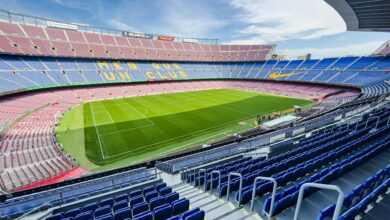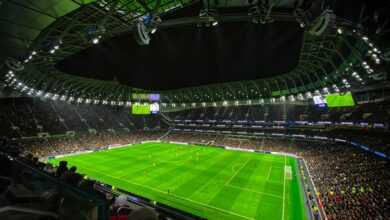
From Pub to Pitch: The Evolution of Sunday League Football in the UK
Sunday League football holds a special place in the hearts of football enthusiasts across the United Kingdom. Originating from humble beginnings, this grassroots form of the beautiful game has evolved significantly over the years, becoming an integral part of the country’s football culture. This article delves into the rich history and transformation of Sunday League football, exploring its rise in popularity, its impact on local communities, and the factors contributing to its enduring legacy.
- Origins and Early Days: Sunday League football traces its roots back to the early 20th century when it began as a recreational activity for factory workers and friends. The concept of playing football on Sundays gained traction as a means to bring communities together and provide an outlet for sporting camaraderie. Initially played informally in local parks and public spaces, Sunday League football gradually developed into organized leagues, complete with teams, fixtures, and regulations.
- Grassroots Football and Community Spirit: Sunday League football has always been deeply rooted in local communities, fostering a sense of belonging and camaraderie. Teams often represent specific neighbourhoods, villages, or social clubs, creating a strong bond among players and supporters alike. The game acts as a social glue, bringing people of diverse backgrounds together, forging lasting friendships, and providing a platform for shared passion and enjoyment.
- Structure and Organization: Over time, the structure and organization of Sunday League football have become more formalized. Local Football Associations and governing bodies have emerged to regulate the leagues, ensuring fair play, enforcing rules, and facilitating competitions. This enhanced organization has enabled teams to participate in various divisions based on skill level, providing opportunities for both competitive and recreational players to showcase their abilities.
- Changing Demographics and Inclusivity: Sunday League football has witnessed a notable shift in demographics, reflecting the evolving societal landscape. While traditionally male-dominated, the sport has become increasingly inclusive, with women’s teams and mixed-gender leagues gaining popularity. This shift has not only broadened participation but has also broken down gender barriers, fostering equality and empowering players of all backgrounds to take part in the game.
- Infrastructure and Facilities: The availability of suitable playing fields and facilities has been a key factor in the growth of Sunday League football. Local authorities and community organizations have invested in the development of sports pitches, providing well-maintained venues for matches to take place. Improved infrastructure, including changing rooms, floodlights, and spectator stands, has enhanced the overall experience for players and spectators alike.
- Competitive Spirit and Rivalries: Sunday League football is renowned for its competitive spirit and passionate rivalries. Local derbies and grudge matches create an electric atmosphere, drawing in crowds and generating a fervent sense of community pride. The fierce yet friendly competition drives players to continually improve their skills and gives rise to memorable moments that become part of local folklore.
- Social and Economic Impact: Beyond the realm of sport, Sunday League football has significant social and economic impacts on local communities. Matches often attract spectators, creating a sense of unity and bringing footfall to nearby businesses. Additionally, the sport provides opportunities for individuals to develop leadership skills by taking on managerial or coaching roles, fostering personal growth and community engagement.
From its humble beginnings as a recreational pastime, Sunday League football in the UK has evolved into a thriving grassroots movement, cherished by communities across the nation. The sport’s enduring popularity can be attributed to its strong community spirit, evolving structure, inclusivity, improved infrastructure, competitive rivalries, and significant social and economic impacts. As Sunday League football continues to captivate players and supporters alike, it will undoubtedly remain a cherished part of the UK’s football heritage for generations to come.




